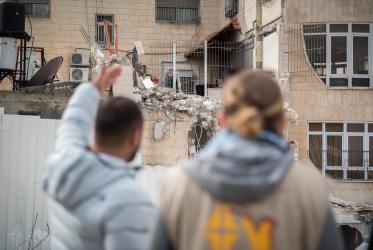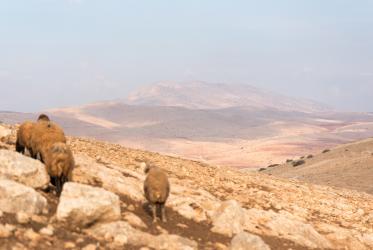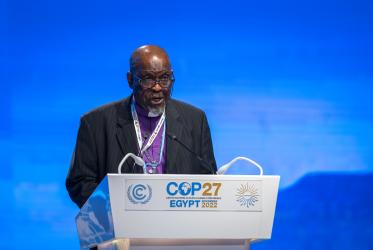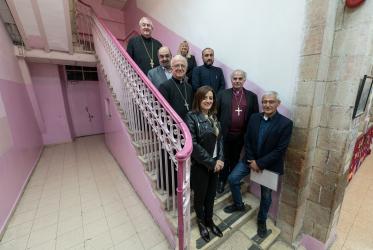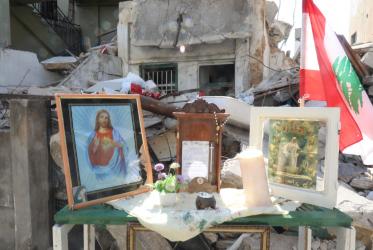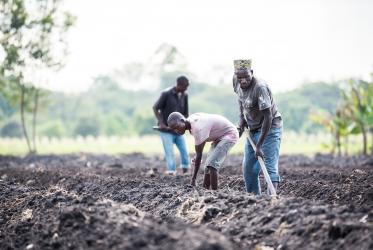Displaying 1 - 20 of 27
Palestinian Christian peace worker yearns for courageous leaders
10 December 2020
Fr Alexi - a peacemaker in Syria
21 December 2018
Creating a better future for Syrian-Armenian youth
29 March 2018
A safe space for sinners to change and for pain to be shared
03 August 2017
Women in development create space for hope in Egypt
15 June 2017
Beirut workshop fosters cooperation on diakonia
14 June 2016


